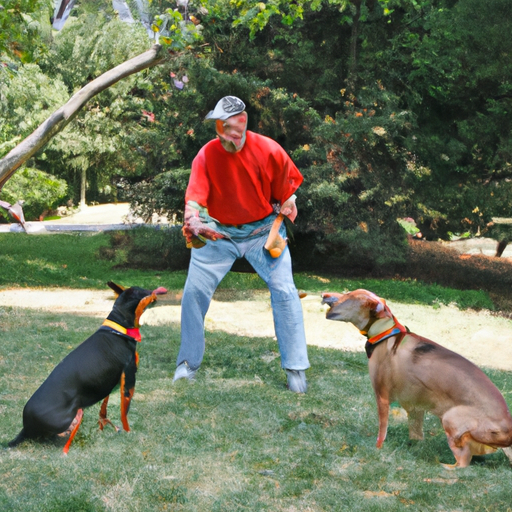Understanding the Roots of Possessiveness in Dogs
Firstly, let’s understand that dogs are inherently possessive creatures. It’s an instinctual behavior rooted deeply in their history as wild animals. The possession of resources such as food, shelter, or toys can mean the difference between life and death in the wild. This primal behavior, known as resource guarding, can translate into the domestic setting, causing issues such as toy possessiveness.
Identifying Signs of Possessive Behavior
Your dog might be showing signs of possessiveness if they:
- Growl or snap when another dog approaches their toy
- Hide their toys
- Become aggressive when they have a toy
- Show unusual attention to their toys even when not playing with them.
Strategies to Stop Your Dog’s Possessive Behavior
Use the ‘Drop It’ and ‘Leave It’ Commands
Training your dog to use these commands can prevent a situation from escalating. Start by teaching these commands using less valued items, and gradually move up to their favorite toy.
Practice Exchange Games
The idea here is to trade a less desirable toy for a more desirable one, teaching your dog that giving up something can lead to a better reward.
Socialization and Playdates
Regularly exposing your dog to other dogs in controlled environments can help them understand appropriate behavior.
The Importance of Consistency and Patience
It’s essential to remember that changing any behavior takes time and consistency. Patience is key. Reward progress, however small, and stay consistent with your training.
When to Seek Professional Help
If your dog’s possessive behavior continues or escalates, it may be time to seek professional help. Dog trainers or animal behaviorists can provide tailored strategies and support.
| Situation | Action |
|---|---|
| Mild possessiveness over toys | Implement strategies at home |
| Aggression or escalation | Consult a professional |
Frequently Asked Questions (FAQs)
Q: How long does it take to correct possessive behavior in dogs?
A: It varies depending on the dog and the consistency of the training. It could take anywhere from weeks to months.
Q: Can all dogs learn to share toys?
A: While most dogs can learn to share, some may have deep-seated issues that require professional help.
Q: Should I just remove all toys when other dogs are present?
A: This is a temporary solution, but it doesn’t address the root issue of possessiveness.
Q: Is possessiveness a sign of an aggressive dog?
A: Not necessarily. While it can lead to aggressive behavior, it’s often a separate issue.
Remember, as a caregiver, your dog looks up to you for guidance and support. With patience, consistency, and a whole lot of love, you can help your dog overcome the possessiveness over toys.



